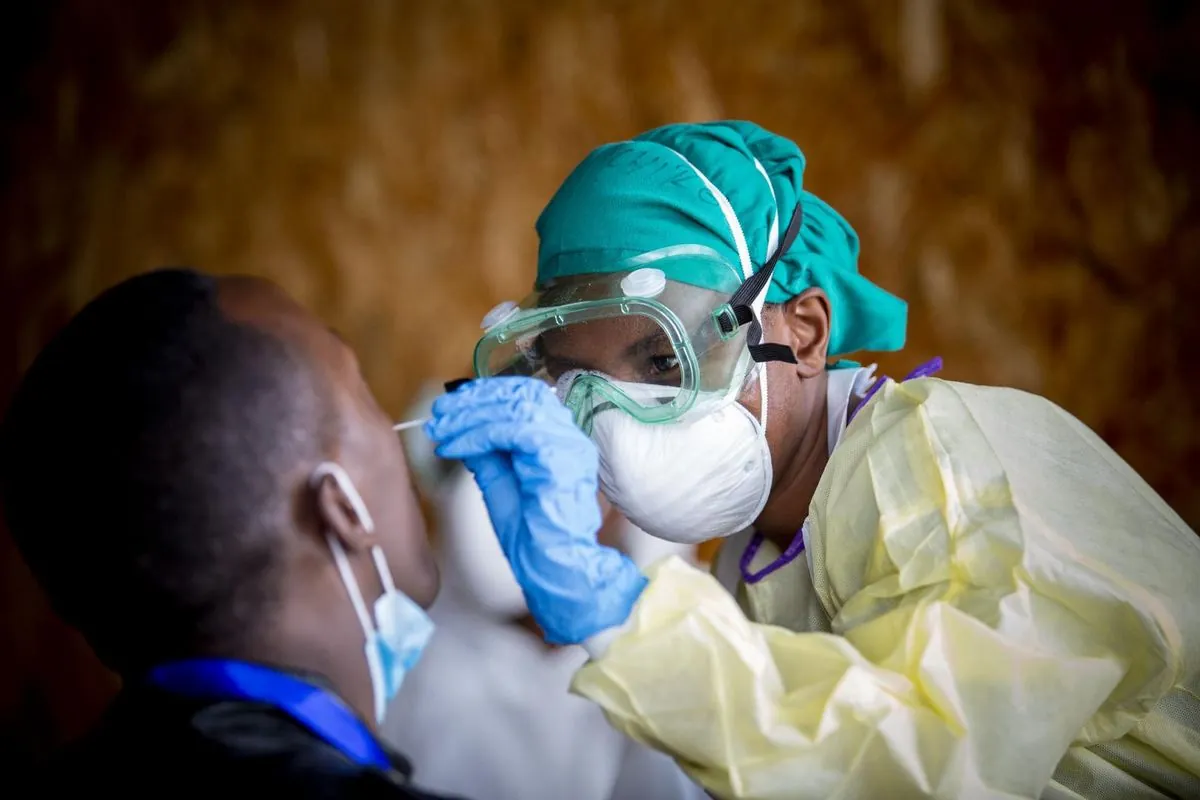Rwanda Battles Deadly Marburg Outbreak Among Healthcare Workers
Rwanda implements strict measures to contain a Marburg virus outbreak affecting healthcare workers. With 8 deaths reported, authorities race to trace contacts and halt the spread of the Ebola-like disease.

Rwanda is currently grappling with an outbreak of Marburg virus, a deadly hemorrhagic fever similar to Ebola. The outbreak, primarily affecting healthcare workers, has prompted the government to implement stringent measures to curb its spread.
As of 28 September 2024, Rwandan authorities reported 8 fatalities and 26 known cases, predominantly among medical professionals. The virus is believed to have spread to healthcare workers treating an infected patient. In response, the government has prohibited hospital visits for two weeks and limited funeral attendance to 50 people for Marburg-related deaths.
Sabin Nsanzimana, Rwanda's health minister, has urged the public to maintain high levels of hygiene and announced additional preventive measures. These include prohibiting open-casket viewings at homes, churches, and mosques, with limited controlled viewings allowed at health facilities.
Marburg virus, first recognized in 1967 after outbreaks in Germany and Yugoslavia, belongs to the Filoviridae family along with Ebola. The virus's natural reservoir is believed to be the Egyptian fruit bat (Rousettus aegyptiacus). It spreads through contact with bodily fluids of infected individuals, putting healthcare workers and family members caring for patients at high risk.

The incubation period for Marburg virus disease ranges from 2 to 21 days. Symptoms begin with fever, fatigue, and body aches, progressing to severe hemorrhaging in some cases. Previous outbreaks have seen mortality rates of up to 88% in areas with poor healthcare.
Peter Hornby, professor of emerging infections and global health at Oxford, noted that hospital outbreaks are common, especially when medical staff are slow to recognize symptoms of this rare virus. He expressed concern about the geographic spread of the virus in Rwanda, suggesting there may have been unrecognized transmission before the outbreak was detected.
Paul Hunter, professor in medicine at Norwich Medical School, speculated that mourners attending the funeral of an early victim might have contributed to the virus's spread to multiple districts.
"My guess (and it is a guess with no direct evidence) is that the index case died, and the infection was spread to other districts by mourners who attended his or her funeral."
Despite concerns, experts believe Rwanda's relatively strong health system gives the country a good chance of halting the infection. Rwanda's healthcare system has often been praised as a role model for the African continent.
This outbreak follows recent Marburg virus incidents in neighboring countries. Tanzania reported an outbreak in 2023, while Uganda experienced one in 2017. In West Africa, 12 people died from the virus in Equatorial Guinea in 2023.
As the situation unfolds, health authorities are racing to trace over 300 potential contacts for isolation. The World Health Organization considers Marburg virus a priority pathogen for research and development, highlighting the urgent need for effective treatments and vaccines.


































